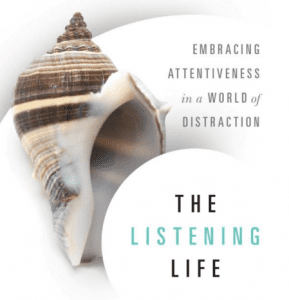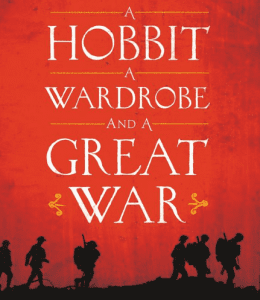 Darrin McMahon is Ben Weider Professor and Distinguished Research Professor in the department of history at Florida State University. David Moore who blogs at www.twocities.org conducted the following interview.
Darrin McMahon is Ben Weider Professor and Distinguished Research Professor in the department of history at Florida State University. David Moore who blogs at www.twocities.org conducted the following interview.
A few years back, I read your terrific book, Happiness: a History. Your new book, Divine Fury: A History of Genius, tackles another big idea. What motivated you to write an entire book on genius?
First of all, thank you for the kind words, and the opportunity (the second opportunity!) to share some of my thoughts with you and your readers.
I was trained as a historian of the 18th century, and as scholars have long recognized, the 18th century was a pivotal moment in the transition to modernity. All my work to date—whether on religious responses to the movement known as the Enlightenment, or the emergence of happiness as a universal ideal, or now genius—has dealt with ideas that rose to prominence in this period out of the deep past and then exercised an important influence in the decades and centuries that followed. Genius is one of these “big” ideas. The cult of genius—from Newton to Napoleon—is very much an 18th-century creation. I try to explain why that is so—why, that is, the genius emerges during the Enlightenment as an ideal of the highest human type—and then go on to show some of the consequences, for better and for worse, of the ensuing genius cult.
Directly related to that is an abiding interest in religion. The 18th century—a time when religious belief was first challenged in a systematic way—is a fascinating laboratory to examine human beings’ propensity for the religious and their enduring fascination with the divine. In surprising ways, the notion of genius is bound up with that propensity. Geniuses, as I try to show, occupy a role in the modern world that had long been filled in the Judeo-Christian world by prophets, apostles, and saints.
Some may be a bit perplexed about the title. How is “divine fury” related to genius?
The title is a reference to Plato who in his dialogues the Ion and the Phaedrus develops a theory of inspiration which he likens to a kind of madness or fury (mania in the Greek; furor in the Latin). Poets, prophets, and seers, Plato suggests, are taken over by the divine—possessed by the gods, who “breathe” into them, giving them “inspiration” (from the Latin verb inspirare, meaning to breathe into). Plato’s theory is somewhat disparaging, for it suggests that poets don’t have anything of their own. They are like empty vessels filled up by a divine spirit. And yet the theory would go on to exercise a huge influence on subsequent understandings of creativity and genius, which as I argue are always bound up with understandings of the divine, and also of evil, frequently returning to the link between genius and madness, as well. Insofar as my book culminates by exploring those connections as they play out in the Nazi cult of genius—leading to a “fury” all its own, as well as to a kind of divine retribution in Hitler’s defeat—the title is fitting.
Early on, you write about Hitler. Towards the end of your book you mention how the incoming freshmen class at Princeton in 1939 picked Hitler as the “greatest living” person. In what ways did Hitler (and others) use the idea of genius to bolster support for the Nazi cause?
This is one of the surprises of the history of genius (it surprised me, in fact), but it turns out that the genius cult was absolutely central to Hitler’s self-understanding and to his appeal and mystique among the German people. Germany in the 19th century embraced what I call a “genius religion” (commentators in the 19th and early 20th centuries used that term as well), a cultic belief in the superhuman powers of specially endowed individuals—“geniuses”—who could see into the fabric of the universe and see into our souls. Geniuses were charged in the 19th century with redemptive and salvific powers, and conceived as kinds of saints and prophets, who could speak for—and embody—the people. Hitler, who had pretensions to being an artist and architect, was steeped in this belief, and in fact he writes about genius at some length in Mein Kampf. The Nazis, in turn, made Hitler’s “genius” a central feature of their propaganda. If you have ever seen Leni Riefenstahl’s propaganda film The Triumph of the Will with Hitler descending from the skies to gather and speak for the German Volk, you will have an immediate sense of this. As perverse as it seems to us today, many Germans—and not just Germans, as your reference to the Princeton poll suggests—regarded Hitler as a genius—and clearly he understood himself that way.
Our founding fathers were greatly taken by the ancient Roman ideas of honor and glory. Some today call it leaving a legacy. John Adams was candid about his struggles with ambition in wanting to be known as great. Did this Roman idea of honor have any bearing on their conception of genius?
Adams was a great admirer of the Roman statesman Cicero, who spoke of the “quiddam divinum” of eminent men, that “divine something” that set them apart from ordinary mortals. The belief in the “divine something” of geniuses will turn out to be a lasting one, but there is not a great deal of emphasis on honor or duty (Roman or otherwise) in this connection. In fact, if anything, the opposite is true. Genius is often spoken about in terms of special license—geniuses can do things that other people can’t and therefore they don’t have to abide by the laws that bind ordinary men and women. Geniuses break rules, they are rebels, or they legislate for others to follow. That at any rate is a part of the modern discourse that begins to emerge in the 18th century.
How is genius viewed differently today than say during the Renaissance?
This is a complicated question to answer, in large part because modern notions of genius (from the 18th century forward) are predicated on a belief in originality and creation. Geniuses are those who create originally, doing things that no one else has done before (This is, incidentally, one of the reasons that the emergence of notions of genius in the 18th century coincides with the emergence of notions of intellectual copyright, something I discuss in the book). For various religious and aesthetic reasons, men and women in the Renaissance don’t have a similar understanding of originality and creation, and so even though we consider someone like Michelangelo or Leonardo to have been a genius, contemporaries did not describe them in this way (the same is true of Shakespeare, who was only dubbed a “genius” in the 18th century). Rather, they thought of Michelangelo as “divine” (literally, Michael of the Angels), gifted and blessed by god with that “divine something” that allowed him to do seemingly miraculous things. That association (between artistic or intellectual prowess and divinity had a long pedigree in classical culture (cf. Cicero’s “quiddam divinum that I referred to above). But in Christian culture, that association is really only made clear at the time of the Renaissance, and it feeds into the later genius cult for sure, as I discuss. But during the Renaissance itself, the notion of a “genius” as an original creator had not yet emerged. Genius is a modern category.
We typically think of genius as a purely cognitive reality. However, since Descartes view of humans as simply “thinking things” has been widely challenged, does this also open the door for feats of physical prowess being labeled genius? In other words, has genius expanded beyond just impressive mental capacity?
It surely has, though that development is relatively recent. In the 19th century, Francis Galton, the father of eugenics and an important figure in my book, includes rowers and wrestlers (alongside mathematicians and other more cerebral types) in his book Hereditary Genius (1869). Then, in a celebrated passage, the great Austrian modernist writer Robert Musil observes in his novel The Man Without Qualities, written in the 1930s, that “the time had come when people were starting to speak of genius on the soccer field or in the boxing ring.” His protagonist is even dismayed to read in the papers of a “racehorse of genius.” That is part of our common vocabulary now—we speak of genius as eminence in any field, including sports. A recent special issue of Time magazine devoted to “The Secrets of Genius,” to take one of countless examples, displayed on its cover, Einstein, Shakespeare, Steve Jobs, and the tennis star Serena Williams. That is, as I say, perfectly common today, but until the late 19th century, it was very rare. Geniuses were conceived overwhelmingly as artists, intellectuals, musicians, scientists, or men of state.
Because of the work of Howard Gardner and others, there is a growing sense that intelligence may reveal itself in many more areas than the standard IQ tests. How has this affected our idea of genius today?
We have pluralized (and democratized) the concept of genius, so that today, it would seem, everyone has a genius for something. David Shenk wrote a bestselling book a couple of years ago, which suggested as much in the title, The Genius in All of Us. That is very much in keeping with the spirit of the times. Gardner speaks of “multiple intelligences” in contrast to the theory of “g” or general intelligence, elaborated by the psychologist Charles Spearmen that was grafted to the understanding of IQ in the first half of the 20th century. Statistically, one is able to show correlations between different facets of an IQ test (for spatial recognition, say, and verbal agility), leading Spearman to conclude that those who had “general intelligence” were gifted in all these areas. That conclusion, as I show in the book, was very much in keeping with understandings of genius, which was likewise seen as a special “thing” that could be applied in many different areas (poetry, generalship, etc.) but that was fundamentally alike in its different expressions. And in fact, the IQ exam grew directly out of the bizarre and frequently perverse science of genius (I call it “geniology”) that developed in the 19th century. Michelangelo and Mozart and Einstein, on this view, all possessed this same thing called “genius.” Gardner argues—and I am sympathetic to his view—that we shouldn’t reify intelligence. Some people have what Daniel Goleman calls “emotional intelligence”—eg. they are good with people—others are good at math, others at poetry, etc. But those skills are different. That view is widely received today, and it applies to genius too.
After completing your work, how has your view of what constitutes genius changed?
Although I assumed at some level that genius was an invention when I began—that is, that genius was a label or category that human beings conferred on others, as opposed to a measurable thing that inhered in special individuals—I believe that much more strongly now than I did at the outset. Are there very smart people in the world? Sure. Are there exceptionally creative people? Without question. Are there people who perform or create better than others? Of course. But to assume that they share some common thing, and that this thing is a product of nature (as opposed to nurture, or some combination of the two) is to my mind altogether misconceived. The cult of genius that I analyze in my book can all too easily lapse into idolatry. And that is a danger. But at the same time, the desire to single out special individuals who seem, in some way, to transcend ordinary humanity is an indication of a powerful human need to marvel and wonder before the extraordinary.
Who would you pick as an example of a genius who is still living?
That is easy, Wile E. Coyote. Or is he dead?











